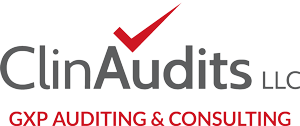Apr
2025
The Current State of FDA REMS Auditing: A Strategic Insight when Working with Auditing Firms.
ClinAudits’ Audit Notes.
The Current State of FDA REMS Auditing: A Strategic Insight When Working with Auditing Firms.
Executive Summary
In the evolving landscape of pharmaceutical regulation, Risk Evaluation and Mitigation Strategies (REMS) have become a critical component of the U.S. Food and Drug Administration’s (FDA) drug safety oversight. As drug therapies grow more complex and high-risk medications enter the market at an unprecedented pace, REMS programs have become increasingly nuanced—necessitating rigorous and specialized auditing practices. For auditing companies, it is important to align with regulatory expectations and support clients in achieving REMS compliance.
The Role of Auditing in REMS Compliance
REMS auditing is not a routine checklist-based exercise—it requires a deep understanding of regulatory science, clinical risk mitigation, operational workflows, and data integrity. The key goals of a REMS audit include:
- Evaluating the effectiveness of REMS implementation.
- Identifying gaps in the execution of ETASU.
- Ensuring documentation accuracy for FDA assessments.
- Validating stakeholder adherence, including prescribers, pharmacies, and distributors.
- Assessing data flows and reporting systems.
Key REMS Auditing Trends and Challenges in 2025
1. Increased FDA Scrutiny
The FDA has demonstrated increased vigilance in REMS oversight, emphasizing data-driven assessments. Recent 483s and warning letters have cited deficiencies in:
- Monitoring systems.
- Patient enrollment tracking.
- Training verification processes.
- Inadequate periodic assessment reporting.
2. Digital REMS Integration
With the shift toward digital health tools and e-prescribing platforms, many REMS programs now integrate with Electronic Health Records (EHRs) and pharmacy dispensing systems. Auditors must evaluate software compliance, data integrity, cybersecurity, and system interoperability.
3. Third-Party Vendors and CROs
Outsourcing REMS tasks to Contract Research Organizations (CROs) and other vendors has increased. Auditing now extends beyond the sponsor organization to include vendor qualification, oversight practices, and contractual compliance.
4. Greater Emphasis on Patient-Centered Measures
The FDA is emphasizing the inclusion of patient-reported outcomes, education effectiveness, and burden of compliance. Auditors need to evaluate the usability and accessibility of REMS materials and tools from a patient perspective.
Best Practices to Consider When Working with REMS Auditing Firms
Auditing firms that aim to establish themselves as leaders in REMS compliance support should consider:
✔ Specialization and Cross-Training
Develop cross-functional audit teams with expertise in pharmacovigilance, regulatory affairs, clinical operations, and IT systems to effectively audit complex REMS programs.
✔ Risk-Based Audit Planning
Prioritize audits based on risk stratification—focusing on drugs with black-box warnings, high patient volume, or complex ETASU.
✔ Standardized Audit Tools
Use or develop REMS-specific audit templates and metrics dashboards to maintain consistency across different clients and REMS types.
✔ Proactive Compliance Monitoring
Encourage continuous compliance monitoring rather than periodic audits only. Recommend mock FDA audits, pre-submission reviews, and ongoing training validations.
✔ Regulatory Intelligence Integration
Stay informed on evolving FDA guidance and integrate regulatory intelligence into the audit planning and reporting process.
Looking Forward: Strategic Recommendations by ClinAudits
The FDA is likely to further modernize REMS programs in the coming years by:
- Requiring real-time data sharing and interoperable platforms.
- Encouraging more patient-focused risk mitigation measures.
- Tightening oversight of third-party REMS partners.
ClinAudits positions themselves as strategic advisors, helping clients build resilient, patient-safe REMS programs that not only meet compliance requirements but exceed them.
Conclusion
As REMS programs continue to evolve in scope and complexity, ClinAudits has a pivotal role in ensuring REMS programs integrity and effectiveness. By staying ahead of regulatory expectations and embracing innovation, ClinAudits can provide critical value in safeguarding public health while enabling pharmaceutical companies to navigate the regulatory terrain confidently.
Interested in learning more about GCP auditing? Stay ahead of regulatory expectations with expert training and audit support. Contact us today! ClinAudits, LLC- Cheri Wilczek, President-email: cheri.wilczek@clinaudits.com; phone: 973 492 8108 extension 111. Our website is: www.clinaudits.com.
WHO WE ARE
ClinAudits is a highly specialized third-party provider of auditing and Consulting services in the areas of:
Good Clinical Practice (GCP)
Good Laboratory Practices (GLP)
Good Manufacturing Practices (GMP)
Good Pharmacovigilance/Drug Safety (GPV)
Good Tissue Practice (GTP)
Risk Evaluation and Mitigation Strategy (REMS)
Since 1999, ClinAudits has completed over 6,000 projects, and we have Grown to over 106 active consultants worldwide!
